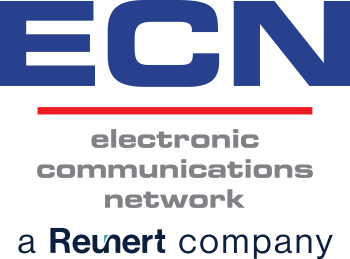To retain a competitive edge in any industry, businesses need to constantly be updating methods and equipment. In the current ‘low-touch’ era, businesses are becoming increasingly reliant on technological methods of communication, which require superior network solutions. Currently, fibre optic is the leading solution for business connection, but for those of you who are still uncertain, here are some FAQs to get you acquainted with business fibre.
What is fibre to the business (FTTB)?
This is the provision of a communications’ signal using fibre optic cable, connecting the operator’s equipment directly to an office or business park.
Read more: What is fibre to the business (FTTB)?
Do I need a telephone line for business fibre?
No. You don’t need any telephone lines as fibre carry data via light across glass cables, not traditional copper wire cables.
Is fibre better than broadband?
Yes. Fibre optic is better, faster and more reliable than the existing broadband options. In terms of business connectivity, fibre is fast becoming the dominant means of connection. For businesses requiring fast and reliable uploads and downloads, or uninterrupted communication technology, fibre is the best option.
Which is faster LTE or Fibre?
Once again, fibre optic is the faster option, although LTE is by no means slow. It can achieve speeds of up to 50 Mbps and is a great mobile option.
Read more: LTE vs Fibre
What are the benefits of business fibre internet?
There are many ways that fibre is a superior internet option, including:
- Increased reliability for uninterrupted connection
- High speed connection
- Access to cloud-based storage
- No signal degradation over distance
- Resistant to all weather conditions
- Resistant to manual interference
- Symmetric upload and download speeds
- Bigger bandwidth capability
Read more: Benefits of fibre internet
How much data can I get?
The service provider will offer a range of data options and prices, either capped or uncapped. Capped services offer limited amount of data, so if you reach the data cap, you pay extra. Uncapped services allow for unlimited amounts of data, but do tend to cost more.
How much does business fibre cost?
Prices range quite a bit, and it’s important to discuss the best speeds for your budget, but this is an overview of uncapped business fibre costs per month:
- 20 Mbps – R700 to R800
- 40 Mbps – R900 to R1 200
- 100 Mbps – R1 000 to R1 500
How does loadshedding affect Fibre?
One of the biggest problems for many businesses is the loss of internet connectivity when load shedding occurs. While load shedding is, undoubtedly, a frustrating reality that will impact productivity, taking the above-mentioned steps will minimise the internet disruption where possible.
Read more: Load Shedding and Fibre
How fast is business fibre?
Fibre optic internet is much faster than even the highest-speed copper connections, but does range anywhere between 5 Mbps and 100 Gbps. Despite increased demand for internet, your business won’t experience lag.
Read more: How much fibre does your business need?
How long does it take to install business fibre?
If there is existing fibre infrastructure in the area, then the installation should only take around two to four hours to complete. With a full installation, you might need to set aside a week before you’re up and running. However, every installation will have its own unique set of challenges, so it’s worth getting an expert on site to consult.
What fibre speed is good for business?
An organisation’s particular speed requirements will depend, firstly, the type of business operation and, secondly, the size of the business. If you’re looking purely at size, then this is a good guide for fibre speed:
- 5 to 10 Mbps: For a home office with about 1 to 3 devices connected.
- 10 Mbps: For a business with between 1 and 10 people, this speed should suffice.
- 20 to 50 Mbps: For up to 20 people using 40 internet-connected devices, this speed works.
- 30 to 100 Mbps: For a medium-to-large organisation with 40 and 90 devices, this is the option.
- 100 to 1 000 Mbps: Large corporations, or those needing fast internet constantly, need the highest possible speed.
Read More: 9 things to consider when choosing business fibre
Will 5G be better than fibre?
While the 5G network brings with it many benefits – particularly high speed – it will take some time before it can rival the existing fibre networks. Fibre will remain the predominant form of communication for the majority of businesses, but 5G will play an important role in the Internet of Things.
Can I track my data use?
Your service provider will give you a breakdown of your data use. This is vital as it allows you to assess how much data your business actually uses and requires going forwards.
What is faster than fibre optic?
No wireless technology is faster than delivered connectivity, although wireless technology does require less infrastructure. 5G technology is also affected by weather and environmental issues, where fibre optic connections are not.
The biggest question to answer, in terms of business fibre, is which company to partner with? Once you’ve found a reliable internet service provider that prioritises customer service, all the other elements will fall into place.

